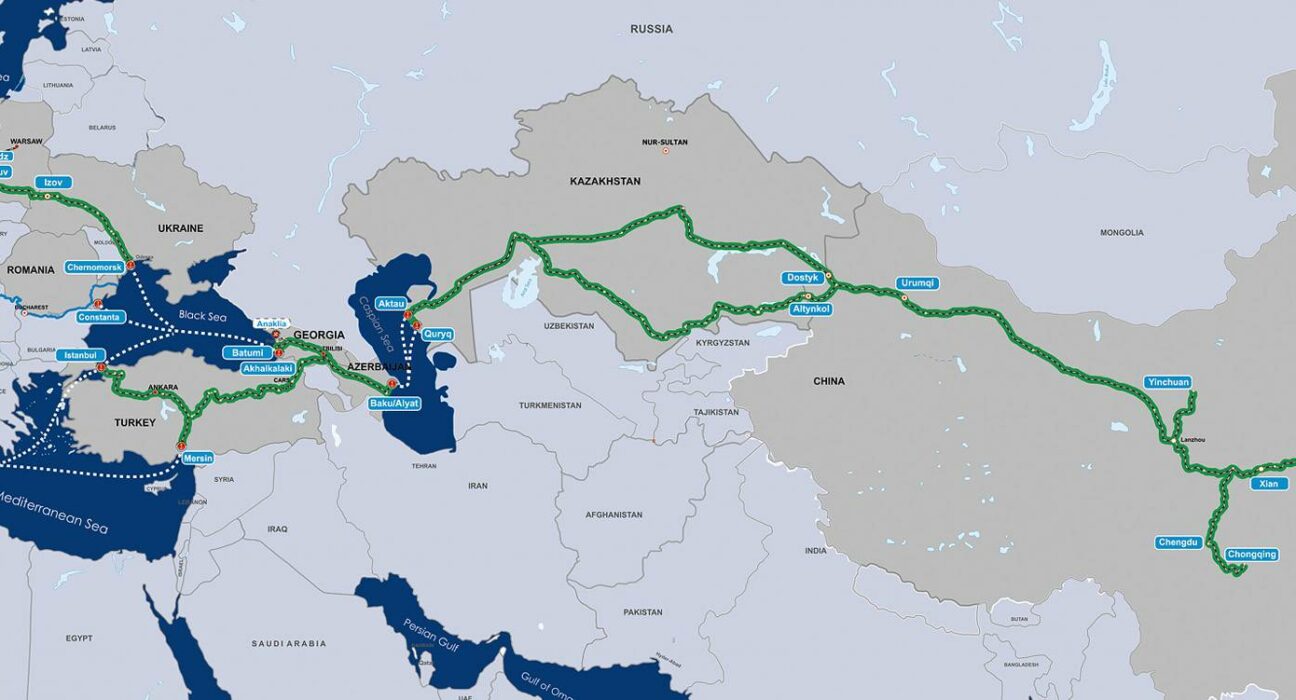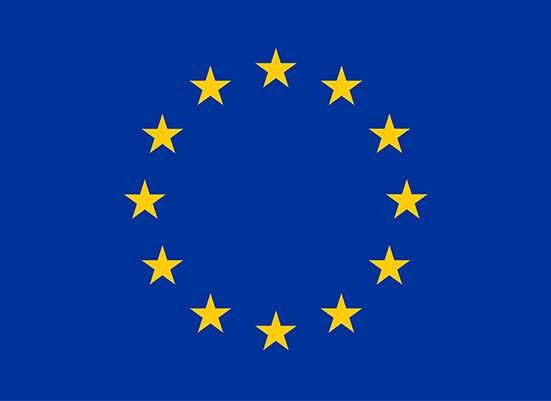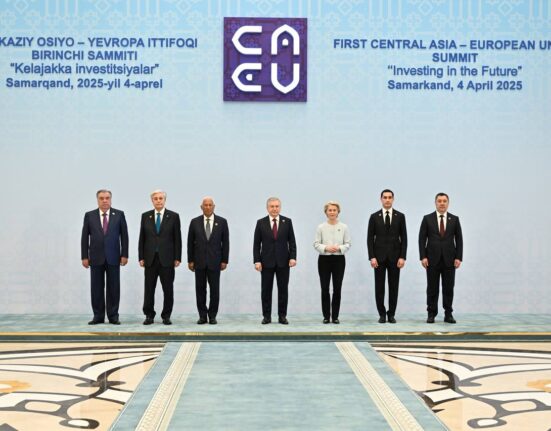Russia’s invasion of Ukraine and subsequent economic sanctions imposed by the west have underlined the urgency of finding alternative trade routes between Europe and Asia that do not pass through Russia. In the new geopolitical realities, Kazakhstan has a good chance to become the main and most sustainable transit route between Europe and Asia. In an effort to become a regional transit hub, Kazakhstan is actively engaged in the development of the Trans-Caspian International Transport Route that will ensure transport flows between the countries of Europe, Central Asia, and China.
The Trans-Caspian Transport Corridor – also known as the Middle Corridor – starts in South-east Asia and China, and runs through Kazakhstan, the Caspian Sea, Azerbaijan and Georgia, before reaching the countries of Western Europe.
In 2023, 2.7 million tons of cargo was transported along the Trans-Caspian route, 86% more than the previous year. In 2024, close to four million tons of cargo are to be transported along the Trans-Caspian Corridor, Kazakhstan’s national railways company, Kazakhstan Temir Zholy, said.
Kazakhstan President Kassym-Jomart Tokayev has frequently spoken about the increasing role of the Trans-Caspian Corridor. During his visit to Italy in January, Tokayev said that the Middle Corridor efficiently complements China’s Belt and Road Initiative. “We seek to connect it further with EU’s Trans-European Transport Network and the Global Gateway Strategy. Over the past 15 years, Kazakhstan has invested more than $35 billion dollars in transport infrastructure. Over the next three years, we plan to build over 1,300 kilometers of railways. This will increase transportation of goods towards China, South Asia and Europe,” he said.
For Europe, the geopolitical significance of the Trans-Caspian Corridor has dramatically increased since Russia’s invasion of Ukraine in 2022. On January 29 and 30, the Global Gateway Investors Forum for EU-Central Asia Transport Connectivity took place in Brussels, Belgium. At the forum, the countries of the European Union and Central Asia took the first steps towards creating a fast-track route along the Trans-Caspian Transport Corridor, which will take only 15 days. The European Commission’s Executive Vice-President, Valdis Dombrovskis announced that European and international financial institutions are to commit €10 billion in support and investment towards sustainable transport connectivity in Central Asia.
Addressing the forum on January 29, the EU’s High Representative for Foreign Affairs and Security Policy, Josep Borrell emphasized the importance of the EU’s partnership with Central Asia. “In this very much complicated geopolitical environment, Central Asia has become a crucial partner for us. Four years ago, Central Asia was a little bit in the middle of nowhere – and now, you are in the middle of everything. You are the cornerstone between Europe and Asia. Everything that matters between Europe and Asia goes through you,” Borrell said, adding that the EU has to invest much more in physical connections between Europe and Central Asia in order to diversify and find new alternatives for transport, energy, and supply chains. “It will breathe new life into the ancient Silk Road, [also] linking up with our partners in Turkey and the South Caucasus,” he stated.
The development of transport connectivity is also a means to strengthen the regional integration and economic development of Central Asia.
Photo: The Trans-Caspian Transport Corridor (middlecorridor.com)




